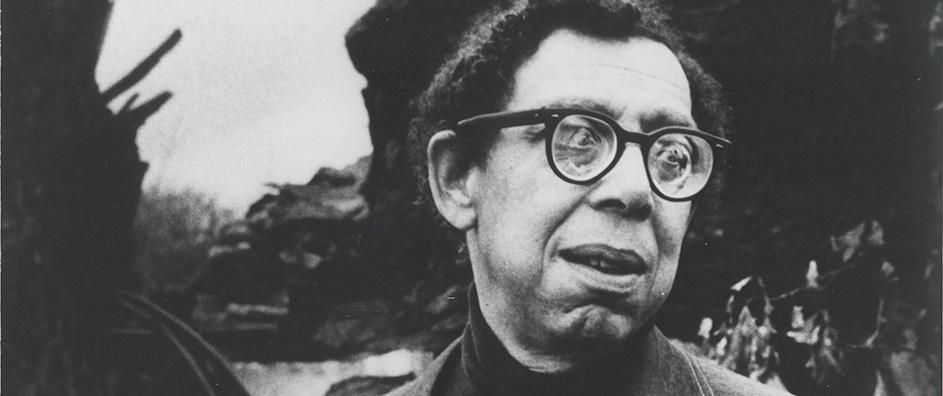Robert Hayden, a luminary in American poetry, stood as the nation’s first African American Poet Laureate, a distinction that highlights not only his literary prowess but also his capacity to engage deeply with themes of identity, humanity, and the intricate fabric of American life. His poetic oeuvre is characterized by a profound exploration of the complexities that define America—a nation replete with contradictions yet bursting with potential. Central to his poetic expression is the complex interplay between personal and collective experiences, which resonates deeply with the Bahá’í teachings emphasizing the interconnectedness of humanity.
At the core of Hayden’s work is the understanding that poetry serves as a mirror reflecting the truths of society. His poem “America” encapsulates these ideas, inviting readers to scrutinize the multifaceted nature of the American experience. Through this prism, one can discern an invitation to transcend superficial judgments and embark on a journey towards more nuanced understandings of both self and society.
Hayden’s stylistic choices evoke a vibrant tapestry of emotions and imagery, utilizing metaphors that resonate culturally and politically. The poem evokes the clash between the idealized vision of America and the stark realities faced by many. In doing so, Hayden’s words articulate a latent discontent, yet they are imbued with hope—a hallmark of the Bahá’í ethos, which espouses the principles of unity, peace, and the empowerment of the individual. This duality serves to ignite curiosity, urging readers to delve deeper into the sociopolitical landscape that shapes their lives.
One of the poignant themes in Hayden’s poetry is that of longing—an inherent desire for recognition and understanding within a diverse tapestry of identities. Here, Hayden mirrors the Bahá’í principle of unity in diversity. His verses portray a longing not merely for acknowledgment, but for the kind of acceptance that fosters societal harmony. This reflects Bahá’í teachings that advocate for the nurturing of differences as part of a collective whole. Despite varying backgrounds, the yearning for connection exemplifies the shared human experience.
The poem also grapples with the idea of memory, a recurring motif in Hayden’s work. Memory, particularly in the context of collective identity, serves as a vehicle for both personal and societal reflection. In “America,” the speaker reflects on historical injustices, while also bearing witness to the resilience of the human spirit. This mirrors the Bahá’í belief in the importance of historical awareness, which paves the way for a more informed and compassionate present. Consequently, readers are reminded of the imperative to confront the past, not only to acknowledge its influence on the present but to forge a path towards a more equitable future.
Furthermore, Hayden’s invocation of the concept of “home” is emblematic of a deeper emotional landscape. In his exploration, home transcends the physicality of space; it morphs into an ideological construct—a place where justice, love, and human dignity reign supreme. This aligns with Bahá’í teachings that speak of the world as a global home, a sanctuary where all humanity can unite, irrespective of geographical divisions and cultural discrepancies. Hayden’s articulation of home prompts readers to reflect not only on their individual circumstances but also on their roles in cultivating an atmosphere of inclusivity and belonging.
The poem also presents the dichotomy of love and conflict, an ongoing struggle emblematic of the American ethos. Hayden’s verses encapsulate the paradox of a nation built on aspirations yet rife with contention. It compels readers to examine their own relationships with these dualities—how love can emerge from strife, and how conflict can serve as a catalyst for change. Here lies a vital intersection with Bahá’í teachings, which promote the resolution of conflict through consultation and peaceful discourse. The exploration of love amidst discord encourages readers to consider how personal transformations can substantiate broader social change.
As one navigates the emotional currents of Hayden’s poetry, an underlying current of hope emerges—a belief in the possibility of reconciliation. His call to action reverberates with the Bahá’í tenets of service and community building, urging every individual to contribute positively. Within his words lies an implicit challenge: to transform the discomfort of awareness into proactive measures towards fostering unity and understanding.
In sum, Robert Hayden’s “America” remains an indispensable commentary on the complexities of identity and belonging. The poem transcends mere literary merit, offering profound insights that invite an examination of personal and societal narratives. For Bahá’í followers, Hayden’s exploration resonates on both spiritual and intellectual levels, prompting contemplation on the principles of unity, justice, and the shared human experience. This interplay between his poetic voice and Bahá’í philosophy beckons readers to shift their perspectives, embrace curiosity, and engage in the ongoing dialogue about the essence of what it means to be part of a diverse yet unified global community.
Ultimately, Hayden’s work serves not only as an artistic expression but as a profound invitation to reflect on America’s evolving narrative. It challenges readers to become active participants in the quest for a harmonious society—one where the inherent value of each individual is recognized, celebrated, and nurtured. With such an understanding, the beauty of poetry converges with the aspirations of the Bahá’í teachings, cultivating a deeper sense of purpose and connection among humanity.
